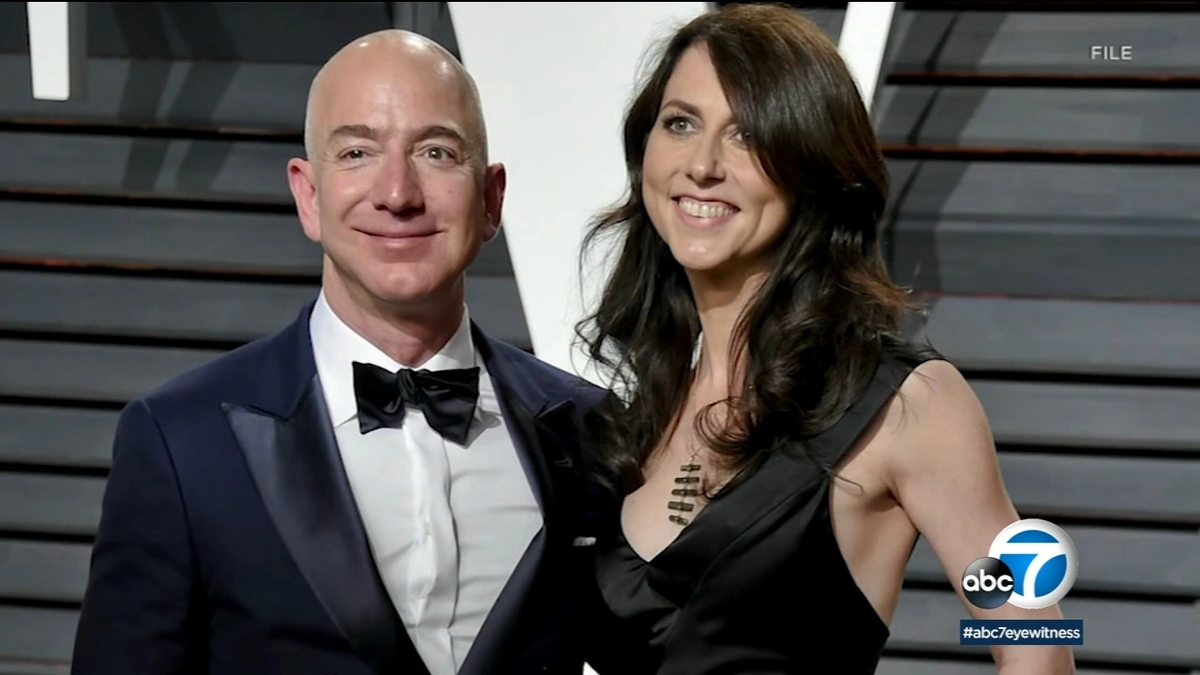Mackenzie Scott. The name probably conjures up images of massive wealth and philanthropy, right? But here’s the thing: it’s not just about the dollar amount; it’s about how she’s giving, and why it’s sending ripples through the world of charitable giving. We’re not just talking about donations; we’re talking about a fundamental shift in power dynamics. It matters because her approach is challenging the traditional, often top-down, structure of philanthropy.
The ‘No Strings Attached’ Revolution

So, what exactly makes Mackenzie Scott’s philanthropy different? The answer lies in her trust-based approach. She and her team identify organizations doing vital work, and then provide them with large, unrestricted grants. What does that mean? Well, unlike traditional grants with very specific uses and lots of oversight, these organizations can use the money where they see the greatest need. This approachflips the script, empowering the organizations on the ground who best understand their communities.
Think of it this way: imagine you’re running a local food bank. A traditional grant might earmark funds solely for purchasing specific items like canned goods. That’s helpful, sure. But what if your real need is a new refrigerator to keep perishables safe, or a salary for a much-needed volunteer coordinator? Unrestricted grants allow you to address those critical, yet often overlooked, needs.
Why Unrestricted Giving Is So Powerful
Here’s the crux of the matter. For years, nonprofits have been stuck in a cycle of chasing restricted grants, leading to what some call the “nonprofit starvation cycle.” They’re so focused on proving their worth to donors by demonstrating specific, measurable outcomes that they often neglect essential operational needs. According to Candid,a leading source of information on nonprofits, a significant portion of nonprofit leaders say fundraising is their biggest challenge. Scott’s approach is trying to break that cycle.
But, giving money without strings attached is scary for some donors. It requires trust. It requires believing that the people closest to the problems are best equipped to solve them. It requires letting go of control.
The Ripple Effect | Inspiring Others & Shaking Up Philanthropy
Mackenzie Scott isn’t just giving away money; she’s sparking a conversation and demonstrating a new model for philanthropy. Her actions are inspiring other wealthy individuals and foundations to re-evaluate their giving strategies. Are there ways they, too, can provide more flexible funding and empower the organizations they support?
And here’s another angle: by publicly announcing her donations, she’s drawing attention to the vital work of these often-overlooked organizations. It’s not just about the money; it’s about raising awareness and amplifying their voices. This is important to consider her overall impact .
The Criticism & The Challenges Ahead
Let’s be honest, no approach is perfect, and Scott’s philanthropy has faced some criticism. Some argue that such large, unrestricted grants could lead to mismanagement or a lack of accountability. Others question the transparency of her selection process, wondering how these organizations are chosen in the first place.
These are valid concerns. It’s essential to acknowledge that trust-based philanthropy isn’t a magic bullet. It requires ongoing dialogue, evaluation, and a willingness to adapt. However, the potential benefits greater flexibility, increased organizational capacity, and a more equitable distribution of resources are too significant to ignore.
One thing to keep in mind: philanthropic endeavors are complex, and there is no one-size-fits-all solution. It’s an ever-evolving landscape.
And, that’simportant context.
What Can We Learn From Mackenzie Scott’s Approach?
Even if you’re not a billionaire, there are lessons we can all take away from Scott’s approach. Consider these points:
- Trust the Experts: Support organizations led by people with lived experience and deep understanding of the issues they’re addressing.
- Give Flexibly: If you can, consider making unrestricted donations to allow organizations to address their most pressing needs.
- Amplify Voices: Share the stories of the organizations you support and help raise awareness about their work.
FAQ | Understanding Mackenzie Scott’s Giving
What’s the big deal about unrestricted grants?
Unrestricted grants give organizations the flexibility to use funds where they’re most needed, rather than being tied to specific projects.
How does she choose which organizations to support?
Mackenzie Scott and her team conduct research and due diligence to identify organizations with a proven track record of impact.
Is this approach really effective?
While it’s still relatively new, early evidence suggests that trust-based philanthropy can lead to significant improvements in organizational capacity and impact.
Where can I find a list of organizations she’s supported?
You can often find lists of recipient organizations in news articles and press releases about her donations. Consider searching for latest philanthropic endeavors .
What if I want to learn more about trust-based philanthropy?
Organizations like the Trust-Based Philanthropy Project offer resources and guidance on this approach.
The real legacy of Mackenzie Scott’s giving won’t just be the billions donated. It’ll be the shift in mindset the recognition that true impact comes from trusting the people on the front lines, empowering them with the resources they need, and getting out of their way.




